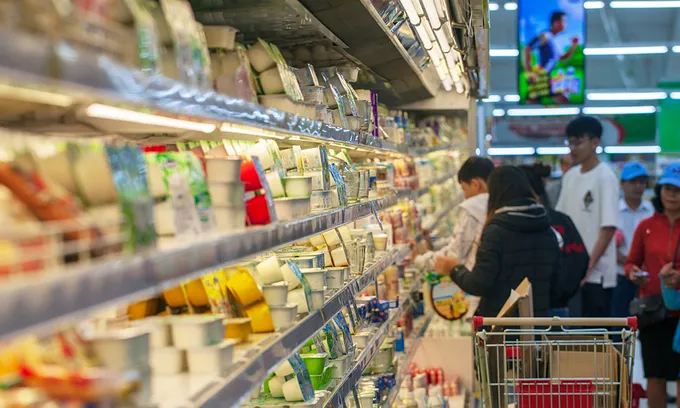
Saigon Investment spoke with Dr. NGUYEN DUC DO, Deputy Director of the Institute of Economics and Finance, for his views on the effects of the current war on Vietnam’s economy.
JOURNALIST: - Sir, how will the sharp fluctuation in the prices of basic commodities such as petroleum, iron, steel, and fertilizer, caused by the sudden Russia-Ukraine conflict, affect the prospects of Vietnam's economic recovery in coming time?
Mr. NGUYEN DUC DO: - The increase in the prices of basic goods in the world will affect the economic growth of Vietnam mainly through two channels. First, the cost of production and transportation of goods will increase significantly, causing many businesses to face difficulties as we know that domestic demand is still weak. Statistics show that in the first two months of the year, the total retail sales of consumer goods and services increased by only 1.7%, as compared to the same period in 2021, and if the price factor is excluded, it will decrease further by 0.3%.
Although production costs have increased, many businesses have not been able to increase sale prices, and have had to accept reduced profits. Some projects may also be delayed due to increased input costs, resulting in unfeasibility during implementation. Of course, the most affected are businesses that provide goods and services to meet domestic demand, for instance the transportation industry. As for exporters whose consumer goods are in high demand, they can pass a significant portion of the cost on to consumers.
Second, an increase in the price of basic goods reduces the demand for final consumer goods. Typically, a sharp increase in gasoline prices will affect people's real incomes. Although they still have to travel as this is an essential need, when real income decreases, people cut back on other nonessential needs, thereby slowing the economic recovery process.
- Sir, is it possible to achieve the target of controlling inflation below 4% this year?
- I think inflation this year is still under control. Compared to the same period last year, the Consumer Price Index (CPI) in February only increased by 1.42%, while core inflation was at 0.68%. With the current weak consumer demand, core inflation is likely to stay low until the end of this year.
As for gasoline prices, this may be a short-term shock. When the tensions in Ukraine cool down, oil prices are likely to cool down as well. Moreover, if oil prices stay high for a while more, the supply of shale oil will increase and cause oil prices to fall again. Also, high oil prices will slow down world economic growth and reduce demand for oil. We have seen that the average price of WTI oil in 2008 and 2013 touched USD 100 per barrel.
Even if the average oil price in 2022 reaches USD 100 per barrel, inflation in Vietnam will not be a worry. This is simple maths. If the price of oil increases by an average of 50% this year, the price of the transport group in the CPI basket will increase by about 15%. With a weight of about 10%, a 15% increase in traffic prices will increase CPI by 1.5%. This is the main channel of influence. Thus, with core inflation currently at just under 1%, it is possible to control the average CPI growth rate below 4% this year.
- Sir, input prices have increased, and gold prices as well as the US dollar has also increased recently due to the current Russia-Ukraine conflict, so how will these factors affect Vietnam's macro-economy?
- In the context of high inflation in the US, currently at 7.5%, and the US Federal Reserve (FED) has raised interest rates, the US dollar will tend to appreciate in the international market. This will create some disadvantages for Vietnam's exports, as the State Bank of Vietnam maintains a stable VND/USD exchange rate. However, in my opinion, the negative effects are not much. Currently, many of Vietnam's export products have a high content of imported material. So basically, Vietnam's exports are less dependent on the exchange rate, but mainly depend on the world aggregate demand. When the world economy grows steadily, we do not need to worry too much about exports.
However, whether the uptrend of the gold price over time will be temporary or sustainable is still unclear. In the period 2016 to 2019, when the gold price increased from USD 1,100 per ounce to USD 2,000 per ounce, Vietnam's macro economy remained stable. Therefore, we can believe that, even though the gold price may increase sharply in the near future, the phenomenon of people withdrawing their savings to rush to buy gold will not happen.
- Sir, the biggest concern is the impact of the world price of gasoline and raw materials on the domestic economic recovery. So what would you suggest in this regard?
- We cannot interfere with the world price of petrol and raw materials. However, to some extent, we can cool down domestic gasoline prices through tax reduction. Currently, how much tax reduction is, and for how long it is being calculated by the Government and the Ministry of Finance is uncertain. I think, in the current context, the tax reduction calculation is the most feasible and likely solution.
- Thank you very much.




















